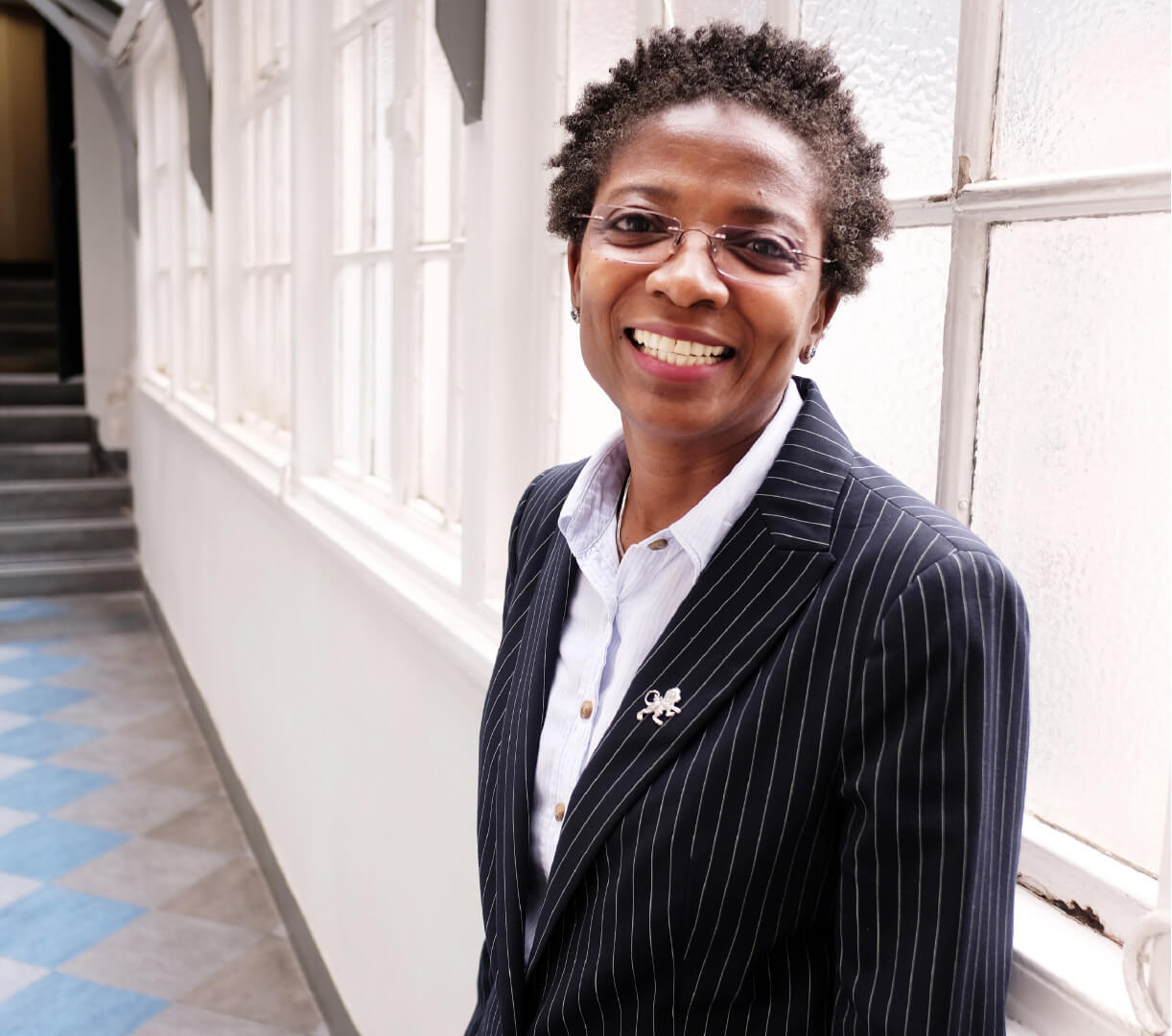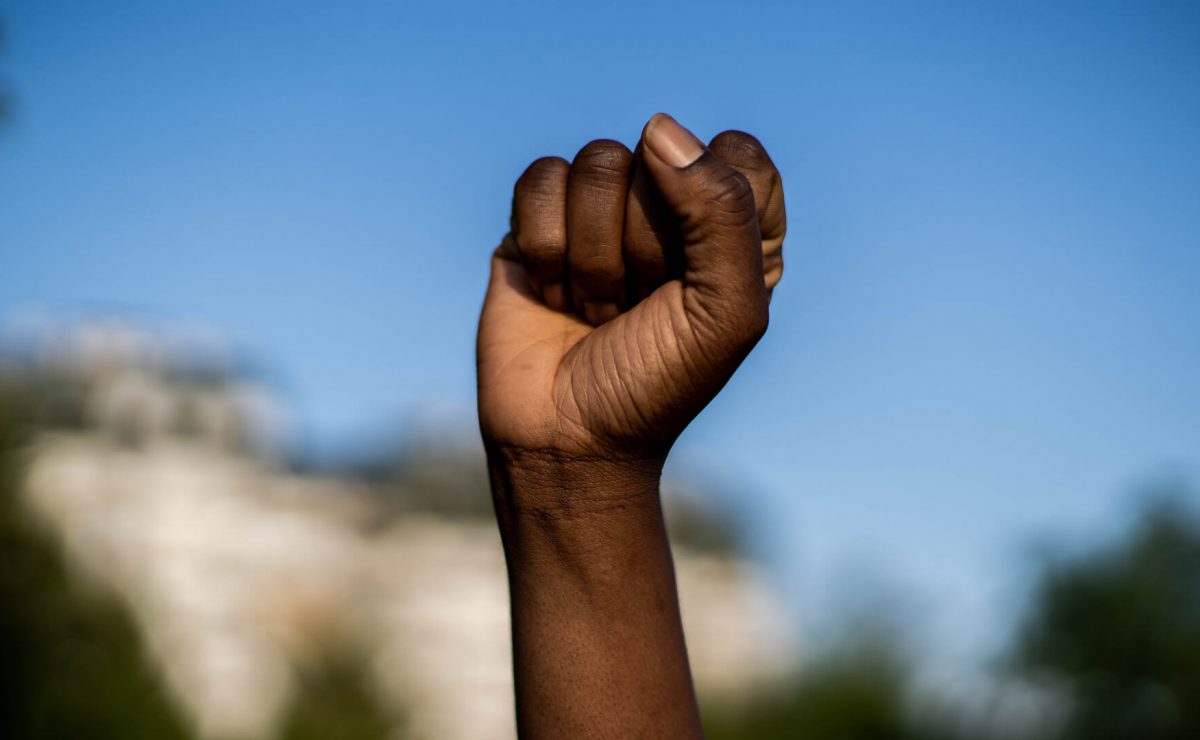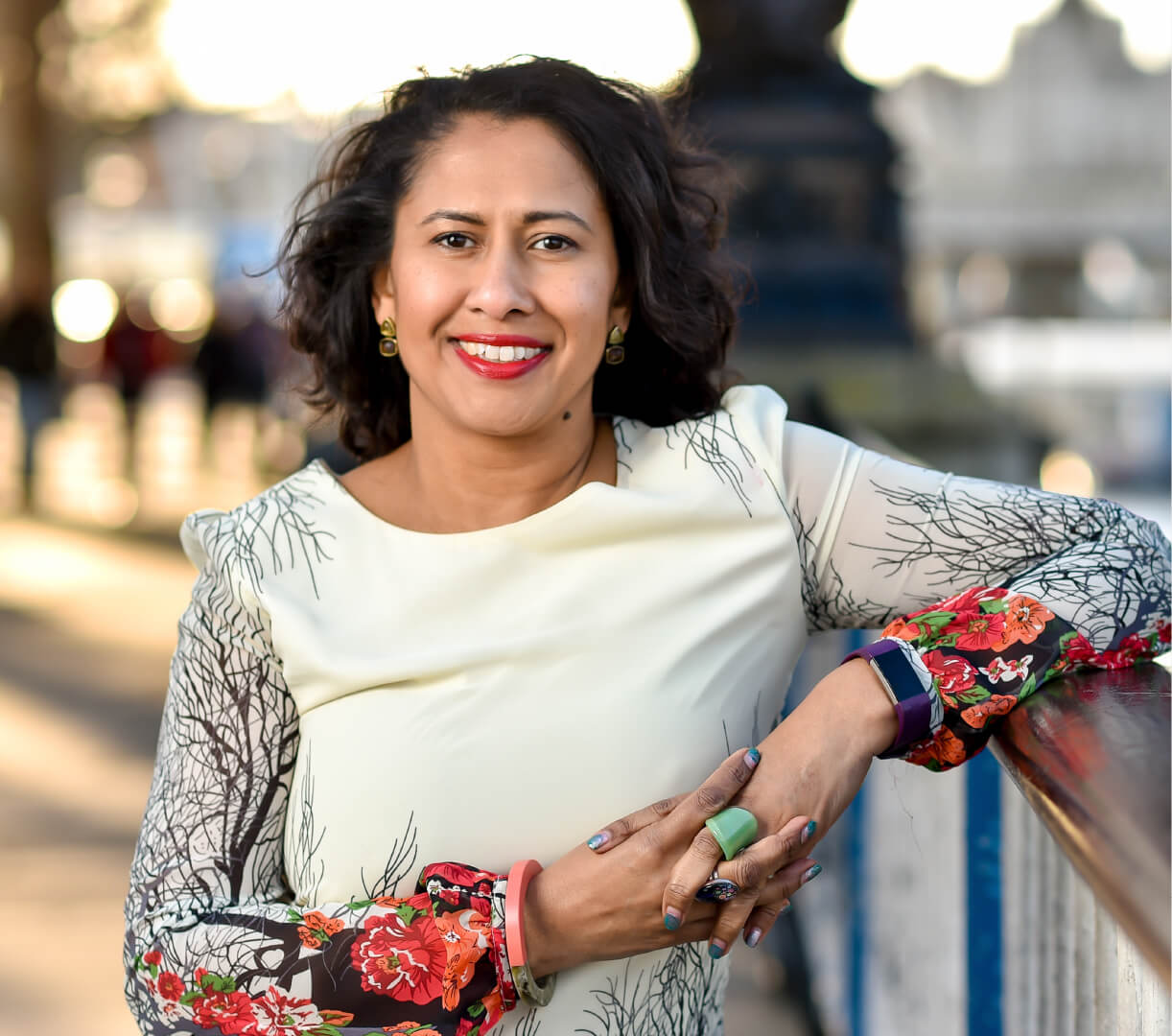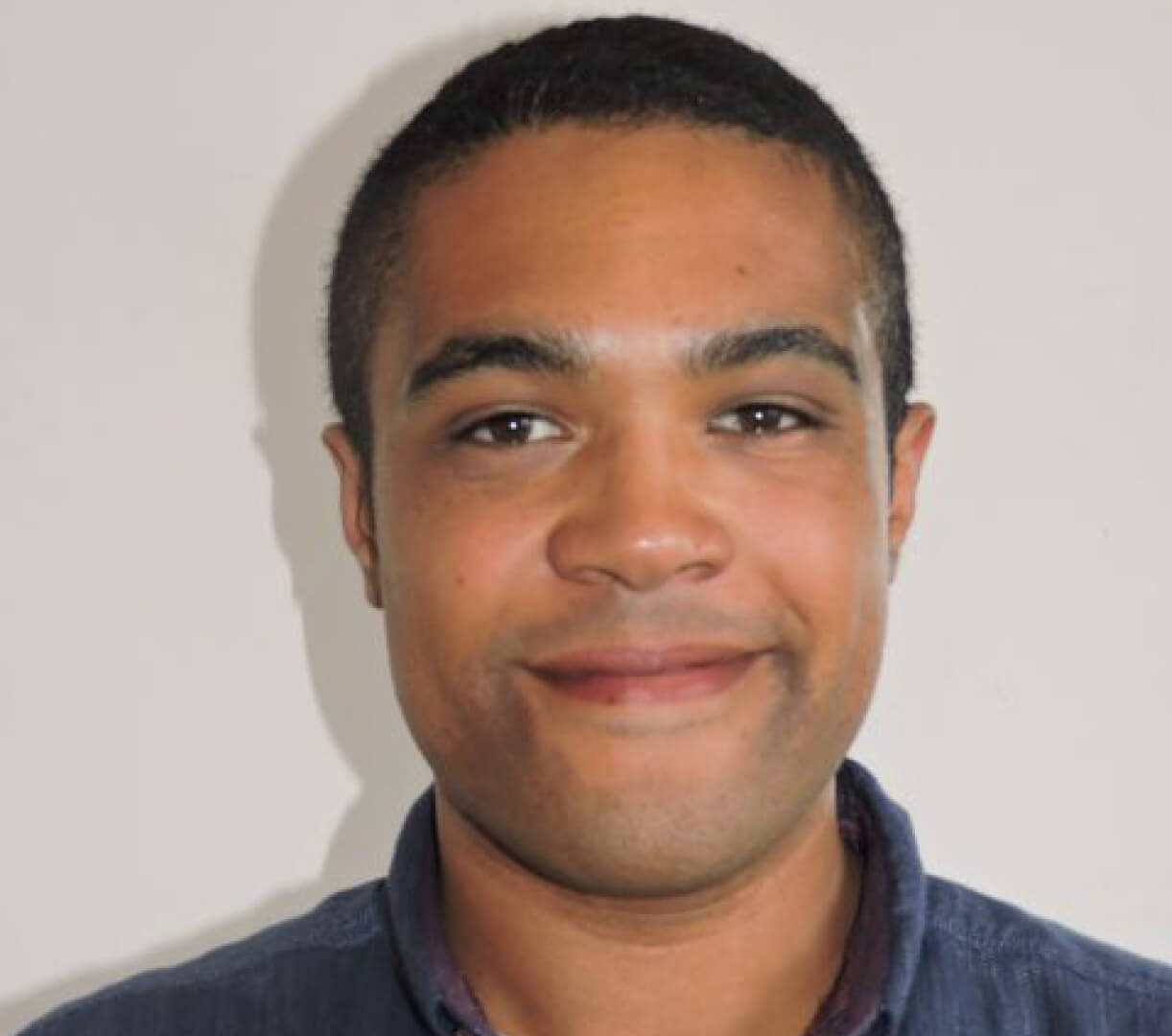
Professor ‘Funmi Olonisakin (MA War Studies, 1990; PhD War Studies, 1996)
Professor ’Funmi Olonisakin is Vice-President and Vice-Principal International and Professor of Security, Leadership and Development at King’s. She is a founding member of the African Leadership Centre, which aims to build the next generation of African scholars generating cutting-edge knowledge for security and development in Africa. Previously, she was Director of the Conflict, Security and Development Group at King’s (2003 to 2013). Prior to this, she worked in the Office of the UN Special Representative of the Secretary-General on Children and Armed Conflict. In 2015, she was appointed by the United Nations Secretary-General, Ban Ki-moon, as one of seven members of the Advisory Group of Experts on the Review of the UN Peacebuilding Architecture. She serves on the board of the Centre for Humanitarian Dialogue and Chairs the Africa Regional Advisory Committee of the Open Society Foundation. In 2018, the Director-General of UNESCO invited her to join the Council of the United Nations University.
Reflecting on the events of the summer, Professor Olonisakin shares: ‘What we now know is the profoundness of the Black Lives Matter movement. It is forcing us to deeply challenge societies and institutions in many ways, including higher education institutions – and our university.’
While the events of this summer might have heralded an awakening of sorts, Professor Olonisakin highlights how the issues raised by the Black Lives Matter movement were no surprise and had been predicted by many.
‘The past couple of years have seen a variety of discourses that have talked about the underacknowledged role of the university in terms of how it has dealt, or not dealt, with racism. For example, we saw the report from the Human Rights Commission, “Tackling Racial Harassment: Universities Challenged”. The report, which came out in 2019, signalled what was to come, but nobody could have predicted that COVID-19 or the events surrounding the killing of George Floyd would begin to change our discourse and action profoundly.’
She continues: ‘As Vice-President and Vice-Principal International, I’m delighted to say that we have spent the past three years preparing our university for a new way of thinking about internationalisation. Deeply embedded within that was the notion of decolonising the curriculum – that’s why it’s clear we are a few steps ahead of the game.’
Touching on the importance of the King’s 2029 strategy, Professor Olonisakin said: ‘Today, I am proud to say that King’s is one of the leaders of the pack. When you look across the Russell Group universities, for example, you can see the kinds of things that we are doing to change the culture of our university. We are not where we want to be, but this discourse is alive, and we will be compelled to enter a brand-new world. This period is like no other in history.’


